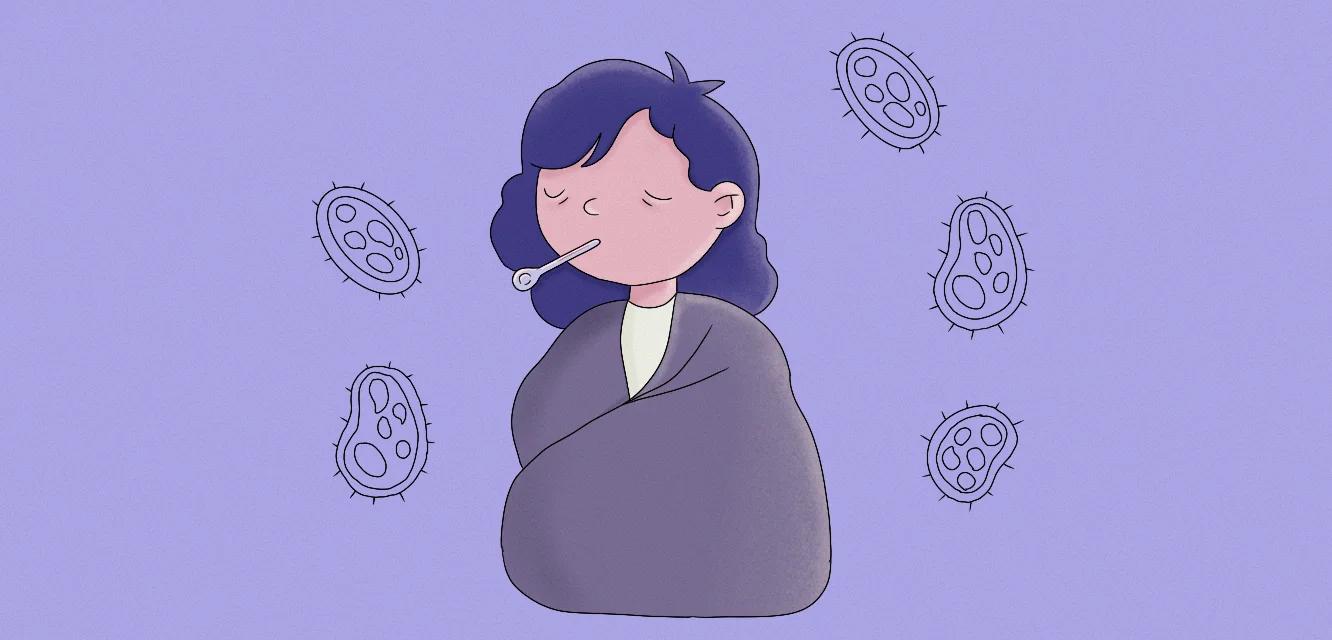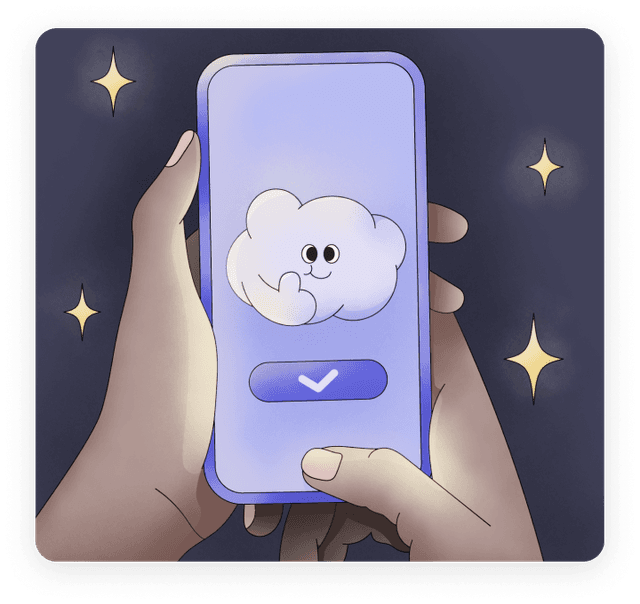
Denys Chumak
31 Aug 2023
Fever Dreams Explored: How Illness Alters Your Imagination
1. Introduction
Have you ever noticed how your dreams get more intense and vivid when you are sick with a fever? You may have had weird and unsettling dreams known as fever dreams. Here, we will explore the meaning of fever dreams, the science behind them and their impact on individuals.
2. Fever Dreaming Meaning
A fever dream's significance is subjective and varies from person to person. Fever dreams may be the brain's way of processing high temperatures, resulting in unique and frequently odd dream experiences. High fevers are known to interrupt REM sleep, resulting in sleep disruption and strange nightmares.
Some theories propose that fever dreams are the body's attempt to analyse and integrate the physiological changes that occur during illness. Others believe that these dreams are a manifestation of underlying emotions or concerns associated with the sickness.
3. The Science of Fever Dreams
Fever dreams, as observed in studies from (2013)[https://www.ncbi.nlm.nih.gov/pmc/articles/PMC3830719/] and (2016)[https://journals.ub.uni-heidelberg.de/index.php/IJoDR/article/view/28492], are characterised by their odd and intense nature. During fever episodes, people often report recurring or shifting dreams that are more negative, emotionally intense, and devoid of social interaction compared to regular dreams.
These strange dream features may be produced by abnormalities in brain activity caused by feverish temperatures. These fever-induced dreams, which frequently include images connected to disease, are thought to be impacted by the brain's knowledge of the body's fever-induced symptoms. The disturbance of REM sleep, a critical stage for dreaming, caused by fever, may have contributed to the altered nature of these dreams.
This tendency is consistent with the "continuity hypothesis" of dreaming, which proposes that recent waking events influence dream content.
4. Fever Dreams vs. Nightmares
While fever dreams are caused by a fever, nightmares can be caused by anxiety, stress, or trauma. These terrible and upsetting nightmares could also be signs of a sleep disorder, such as sleep apnea or narcolepsy. Nightmares, regardless of their origin, can impair sleep quality.
Nightmares can be reduced by reducing stress and practising good sleep hygiene. Cognitive behavioural treatment may be required in more difficult situations. A sleep study can also establish whether or not a sleep issue exists.
5. Fever Dreams vs. Lucid Dreams
The dreamer becomes aware that they are sleeping during lucid dreams. Some lucid dreamers claim to have control over their dreams. In one study, approximately 40% of fever dreams were described as lucid. This figure is substantially higher than the 7.5% of healthy persons who have lucid dreams.
6. The Emotional Component of Fever Dreams
A. The Heat of Emotions in Fever Dreams
Fever dreams represent repressed emotions such as wrath, irritation, and resentment in our waking lives owing to societal pressure or personal convictions. Even though these dreams might be unsettling, they serve the purpose of expressing deep emotions.
B. Emotional Well-Being Impact
The intense emotions experienced in fever dreams can leave the dreamer feeling awkward and uncomfortable upon waking. These nightmares may also cause increased emotional instability, unpleasant thoughts, and bewilderment. However, if approached with self-reflection, fever dreams are able to help you with personal growth.
7. Causes and Effects of Fever Dreams
Underlying Conditions
Of course, it's possible that fever dreams aren't necessarily dreams—at least not in the way we know them. "We know that people with other medical conditions, such as encephalopathies [diseases that affect the function or structure of the brain], may have hallucinations," Dr. Rodriguez explained. "Hallucinations could be a form of 'awake dreaming' in those circumstances. The same might be argued if we had a fever."
Poor Sleep
Sleep deprivation caused by illness may also contribute to odd dreams. "Having a fever is an unstable state that will fragment our sleep," Dr. Rodriguez explained. "We know that patients with severe sleep apnea or narcolepsy, both of which have a form of sleep fragmentation, have a tendency to remember more of their dreams." Dr. Rodriguez also mentioned that whether or not we have a fever, we usually remember the more distressing dreams, such as nightmares.
Stress
Even if you are not feverish, you may have unusual dreams—especially if you are under stress. According to Gail Saltz, MD, an associate professor of psychiatry at NY Presbyterian Hospital Weill-Cornell School of Medicine and host of the "Personology" podcast, dreams are significant in comprehending unconscious thinking. "A dream can provide a window into unconscious anxieties, fears, desires, and so on if correctly interpreted by a patient and doctor working together," Dr. Saltz stated.
8. Finding Meaning and Guidance in Fever Dreams
Take your medication.
If you have a fever, one of the finest things you can do is take medication to alleviate it. The sooner you get rid of your fever, the sooner you can get rid of your fever nightmares.
Consume plenty of water.
When you have a fever, you become dehydrated, so drink plenty of fluids to keep your body hydrated. This will assist in reducing the fever and, as a result, the fever dreams.
Take a hot bath.
A warm bath will help you break your fever. It can also help you relax if you've been feeling uneasy after having fever dreams.
Rest whenever possible.
Fever dreams can make sleeping more difficult than usual, so if you can, sleep whenever your body needs to. While napping all the time is not recommended under normal conditions, it is acceptable when unwell.
Before going to bed, keep an eye on what you consume.
When you have a fever and are concerned about fever dreams, the same rule applies as it does when you have a fever and are worried about fever dreams. Though you're probably not eating much due to your fever, you should still be mindful of how close to bedtime you eat, as certain foods can interfere with sleep.
9. Conclusion
Fever dreams are unique and intense experiences when our bodies fight off infections. These dreams can offer a glimpse into our subconscious and bring to light unresolved emotional issues. Individuals can find guidance and insight for their everyday lives by exploring the symbols and themes in fever dreams.
Although they can be unsettling, it is essential to remember that fever dreams are temporary and can ultimately contribute to personal growth and healing. Through self-reflection, professional guidance, and managing overall well-being, fever dreams can be experienced as an opportunity for self-discovery and self-empowerment.
Now that you’ve got an answer to why do fever dreams happen? Check out (DreamApp)[https://dreamapp.io/], a dream dictionary to decode the fever dreams meaning.
10. Frequently Asked Questions
Why do fever dreams happen during illness?
Fever dreams occur due to the brain's altered state during a fever, leading to vivid and bizarre experiences influenced by illness-related stress and inflammation.
Are fever dreams harmful?
Fever dreams are generally harmless. They are a result of the body's natural response to illness and should subside as the fever resolves.
Can fever dreams be realistic?
Yes, fever dreams can feel incredibly realistic, blurring the line between imagination and reality due to the heightened brain activity during feverish conditions.
Do all illnesses cause fever dreams?
Fever dreams are commonly associated with infections and illnesses that raise body temperature. However, not everyone experiences them, as individual reactions may vary.
How can you manage fever dreams?
Rest and fever-reducing medications may help manage fever dreams. Addressing the underlying illness and maintaining hydration can lead to quicker recovery and fewer intense dreams.
Did you have an unusual dream with this symbol?
Let's analyze this dream with our expert!
At least five words, please.

Your dreams are completely private
Take control of your dream emotions in the free mobile app



The most recent users' dreams
Go to the user dreams page
Dream App
Free dream interpretations

(1,213)











